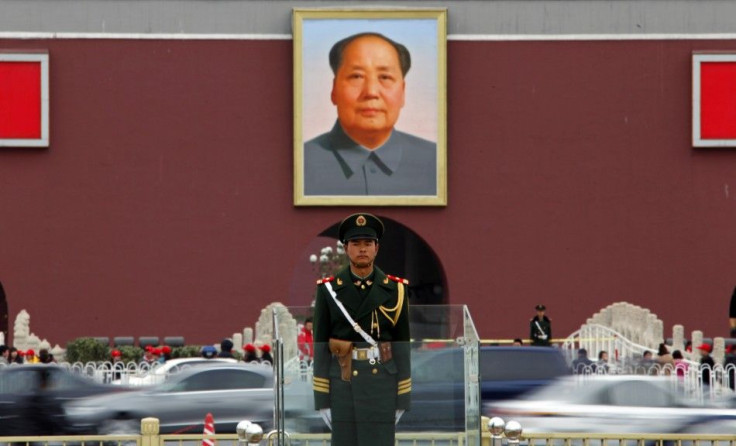China’s Premier: Bank Monopoly Must Be Broken

China's Premier Wen Jiabao called the country's state-owned banks a monopoly that has to be broken to allow freer flow of capital to loan-hungry smaller businesses, as the world's second largest economy appears to have skidded to its slowest growth in three years.
Wen's comments, carried on China National Radio, were blunt.
Frankly, our banks make profits far too easily. Why? Because a small number of major banks occupy a monopoly position, meaning one can only go to them for loans and capital, Wen told local businesses at a roundtable discussion held in the city of Fuzhou.
That's why right now, as we're dealing with the issue of getting private capital into the finance sector, essentially, that means we have to break up their monopoly, Wen said.
The 69-year-old premier is set to step down next year in China's biggest leadership change in a decade.
Wen has long been known as a reform-minded leader and has been outspoken on the urgency to reform China's financial system. He apologized last month in a nationally televised news conference held at the end of China's annual legislative session for failing to move faster on reform.
Wen's latest remarks on breaking banking monopolies wasn't carried in either Xinhua, China's official news agency, or the People's Daily, the main Communist Party newspaper, an indication that these remarks might not be shared by the rest of the leadership in Beijing.
Wen was cited saying, however, The central government is unified on this.
Wen has one year left (in his term), a Chinese state banker who asked not to be identified because of the sensitivity of the topic, told Reuters. This is a task for the next generation of leaders. It cannot be accomplished within one year.
Last week, Beijing gave the go-ahead for financial reforms in Wenzhou -- known as China's cradle of private enterprise -- to encourage private investment in local banks and set up financial institutions such as loan companies and rural community banks.
Wenzhou was selected for the pilot project after media reports surfaced about Wenzhou entrepreneurs who had gone into hiding or committed suicide after they were unable to repay debts.
Beijing hopes that cash-starved small businesses will be able to access financing more easily and cheaply. This will also help tame an underground lending market, also known as shadow banking, where annualized interest rates can reach as high as 100 percent.
The exact size of the shadow-banking industry is unclear. Many private businesses though turn to this market for loans because they lack the connections to access loans at official rates.
The large banks tend to direct most of their lending toward fellow state-owned enterprises, while China increasingly depends on smaller private firms for job creation and economic growth.
State-owned banks tend to favor state-owned enterprises over smaller, private businesses.
I think those elements in Wenzhou that succeed need to be expanded nationwide and can immediately be introduced nationwide, China National Radio quoted Wen saying.
The Big Four banks -- Industrial and Commercial Bank of China; Bank of China; Agricultural Bank of China and China Construction Bank -- account for about 40 percent of China's total loans.
In 2011, total net profit at the top four banks reached $99 billion, more than doubled the $48 billion earned by their U.S. rivals -- Bank of America Corp. (NYSE: BAC); Citibank Inc. (NYSE: C); Wells Fargo & Co. (NYSE: WFC); and JPMorgan Chase & Co. (NYSE: JPM).
China's economy expanded 9.2 percent last year after growing 10.4 percent in 2010. Zhang Xiaoqiang, vice chairman of the country's National Development and Reform Commission, said China's economy probably grew about 8.4 percent in the first quarter, the least since the first half of 2009.
China is scheduled to release first-quarter GDP data on April 13 and Consumer Price Index on April 9.
© Copyright IBTimes 2024. All rights reserved.



















